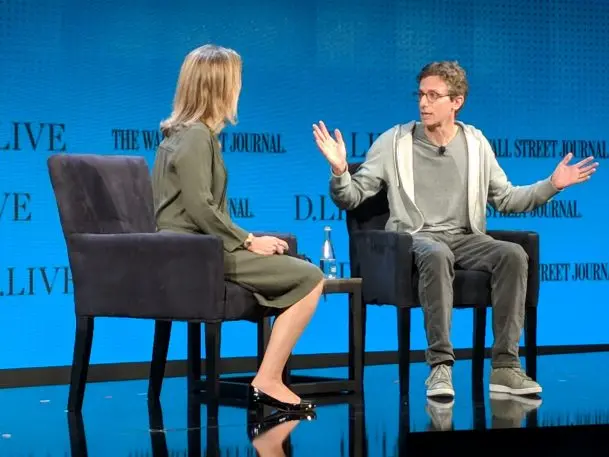Venerable news-gathering institutions such as the New York Times and Washington Post are betting their future on getting people to pay for quality journalism, with some success. But at the D.Live conference presented by the Wall Street Journal—another fan of paywalls—BuzzFeed’s Jonah Peretti says that he worries about expecting readers to pay for news, even if it’s a viable business.
“The subscription model does not support informing a broad audience,” said Peretti, whose own media operations monetizes itself through advertising and sponsorships and has a strategy of being omnipresent rather than walling itself off. “It’s a huge issuee for society and democracy.” Google and Facebook capture a giant percentage of available online advertising revenue, he added, but they don’t “pay for the reporting, the fact-checking, the more intensive investigations.”
Though Peretti didn’t offer any solutions for the media industry, he said that it’s incumbent on the major platforms to come up with ones beyond getting readers to pay: “Google and Facebook are going to have to fix that. It’s not tenable that the only people getting quality news will be only 2% or 5% or even 20% of the public.”

Recognize your brand’s excellence by applying to this year’s Brands That Matter Awards before the early-rate deadline, May 3.
